According to the United Nations High Commissioner for Refugees (UNHCR), there are more than 29 million refugees worldwide under its mandate. Most of them are hosted in the countries of the Global South and find themselves in a protracted situation without access to a durable solution, such as voluntary return, resettlement, or local integration as defined by the UNHCR. Next week, the Global Refugee Forum will meet in Geneva for the second time to address this situation and to revitalize global solidarity vis-à-vis the countries that host them.
The Global Refugee Forum was established in 2019 to monitor the implementation of the Global Compact on Refugees (GCR), adopted the previous year. The forum gathers representatives from governments, international organizations, nongovernmental organizations, and other entities to support the development of long-term, sustainable solutions to large movements of refugees. At the forum, stakeholders make voluntary pledges in the form of financial contributions, policy changes, specific programs or projects, and other types of support to improve the conditions of refugees and their host communities.
The forum also provides an opportunity to explore innovative policy proposals. One such proposal has been made by the United Nations Development Program (UNDP) under the title of the “Turkey Compact.” Its central idea is that in return for hosting large numbers of refugees and facilitating their access to formal employment, the countries of the Global North should grant these countries facilitated market access by concluding preferential trade agreements with them. This idea deserves greater policy attention because it promises to make long-term support for refugees and their host communities considerably more sustainable and effective. The Global Refugee Forum provides an ideal platform to do this.
Economic inclusion for refugees
An important consequence of the European migration crisis of 2015 and 2016 was the realization that the refugee protection regime based on the 1951 Geneva Convention Relating to the Status of Refugees was “broken” and improving the economic inclusion of refugees could benefit both refugees as well as the development of their host communities. A growing body of research also shows that the proper employment prospects for refugees and a welcoming environment for their entrepreneurs contribute to economic growth in the host country. This research, moreover, demonstrates that the faster obstacles to formal employment are resolved, the sooner refugees integrate as productive members of their host society. Finally, this kind of positive integration also enhances the likelihood of refugees returning to their countries of origin and their ability to help with reconstruction there.
This thinking is reflected in the GCR’s call to support the self-reliance of refugees and the resilience of host communities through, inter alia, the promotion of “economic opportunities, decent work, job creation and entrepreneurship programs for host community members and refugees” in countries hosting them. Four countries, Colombia, Jordan, Turkey, and Uganda, have at least on paper made efforts to facilitate access to work permits for refugees while many more countries legally allow refugees to enter their formal labor markets. Yet these measures have not always been very successful.
Turkey and the limits of promoting economic inclusion
Take the case of Turkey, which hosts 3.6 million refugees, the largest number in the world. In 2016, legislation was introduced that enables refugees, under certain conditions, to obtain work permits. However, very few refugees have been granted work permits; an estimated 800,000 to 1.1 million refugees, including women and children, participate in the informal labor market under particularly precarious conditions.
Furthermore, in Turkey, considerable international funding has been channeled into projects to support refugees’ access to livelihood opportunities, emphasizing the acquisition of vocational and language skills. However, despite an ever-growing number of such projects, there has been neither a sizeable nor a sustainable increase in formal jobs for refugees. According to the “Turkey: 3RP Country Chapter 2023-2025,” the 2021-22 livelihood projects put only about “20,000 individuals into employment through job placement and job creation activities.” Another source put the number of jobs created through such projects from 2017 to 2024 at 66,000.
Creating demand for refugee labor in Jordan
One way to overcome the problem of transforming improved “employability” into sustained employment would be to create demand for refugee labor. The GCR suggests exploring “preferential trade arrangements … especially for goods and sectors with high refugee participation” to spur employment both for refugees and locals, thereby helping social cohesion. This suggestion is fully in line with trade liberalization policies that call for the reduction of tariffs, the expansion or even full elimination of quotas, and the resolution of regulatory obstacles, all of which are key drivers of economic growth and employment. Such economic growth would also help create demand for refugees’ skills and labor and complement ongoing efforts to increase their employability.
So far, the EU-Jordan Compact is the only example of its kind. In this compact, the EU promised to provide easier market access for the products of Jordanian companies employing a minimum number of Syrian refugees, on the condition that the Jordanian government facilitate the acquisition of work permits for the refugees. However, the compact failed to reach its targets for various reasons, such as the lack of companies that fit the criteria, met EU export standards, and were active in the product sectors listed in the compact.
The Jordanian government’s remaining restrictions on the employment of foreign workers and its delays in issuing work permits, of which most were for short-lived cash-for-work programs rather than sustainable jobs, further contributed to the compact’s failure. In particular, refugee women have not been able to benefit from these efforts, with their employment level remaining especially low. In contrast, the UNDP’s Turkey Compact offers an actionable policy proposal on how to remedy these problems.
The UNDP’s proposal deserves attention
Last year, the UNDP commissioned a feasibility study that demonstrated how an extension of trade preferences to Turkey by Canada, the EU, and the United States could incentivize businesses in the Turkish agricultural, processed food, and textile sectors to generate sustainable employment for both Syrian refugees and locals. If implemented, this policy would help expand Turkish exports by an estimated $7.8 billion in 2025, create directly and indirectly 336,000 jobs, and add 0.82% of value to Turkey’s overall GDP. Like the EU-Jordan Compact, the Turkey Compact conditions Western countries’ trade liberalization on the increased formal employment of Syrian refugees in Turkish companies.
This policy proposal is in line with the GCR’s call for a “whole society approach” that also incorporates the interests and needs of host communities while addressing the challenges of social cohesion. It would also be in line with the United Nations’ 2030 Sustainable Development Goals and its commitment to “leave no one behind.” In the longer run, this proposal could constitute a template for other countries, particularly in the Global South, that host many refugees by promoting agreements that take a developmental approach instead of focusing on migration control by means of pure border management.
Finally, especially given the political atmosphere vis-à-vis refugees in EU member states today, win-win migration agreements that offer host countries tangible benefits in the form of sustainable job creation could become an effective way to uphold the Geneva Convention of 1951.
The UNDP’s policy proposal of extending trade preferences to spur sustainable employment for both refugees and locals deserves consideration at the upcoming Global Refugee Forum. It is an idea that offers win-win outcomes for refugees, their host countries, and donor countries, whose resources are increasingly stretched in a world that faces ever more natural and human-made disasters.


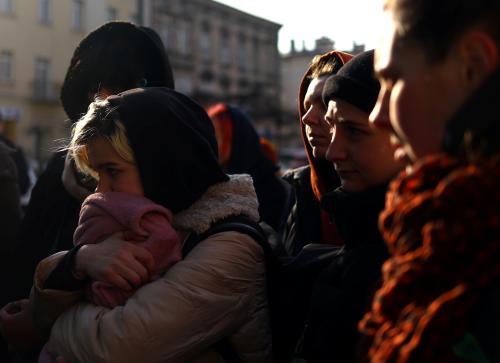
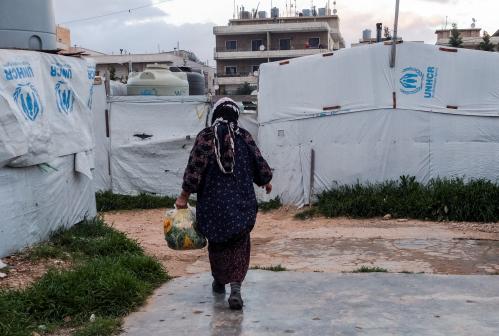
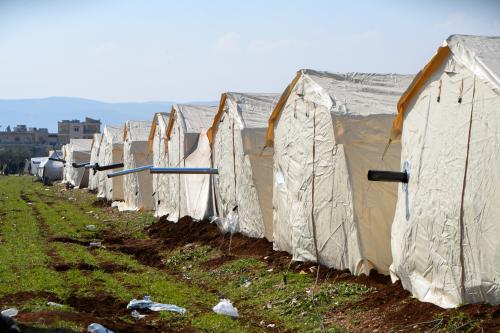
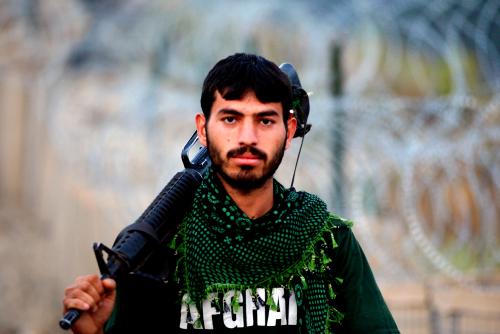
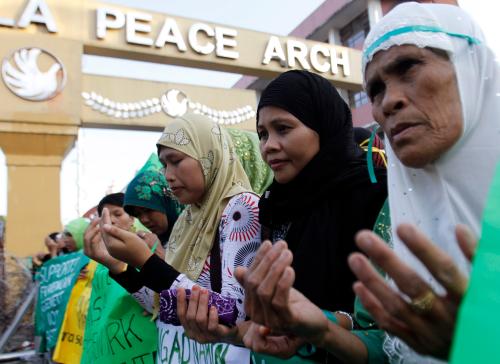
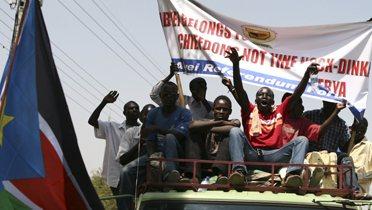
Commentary
The Global Refugee Forum can markedly improve refugee economic inclusion
December 8, 2023